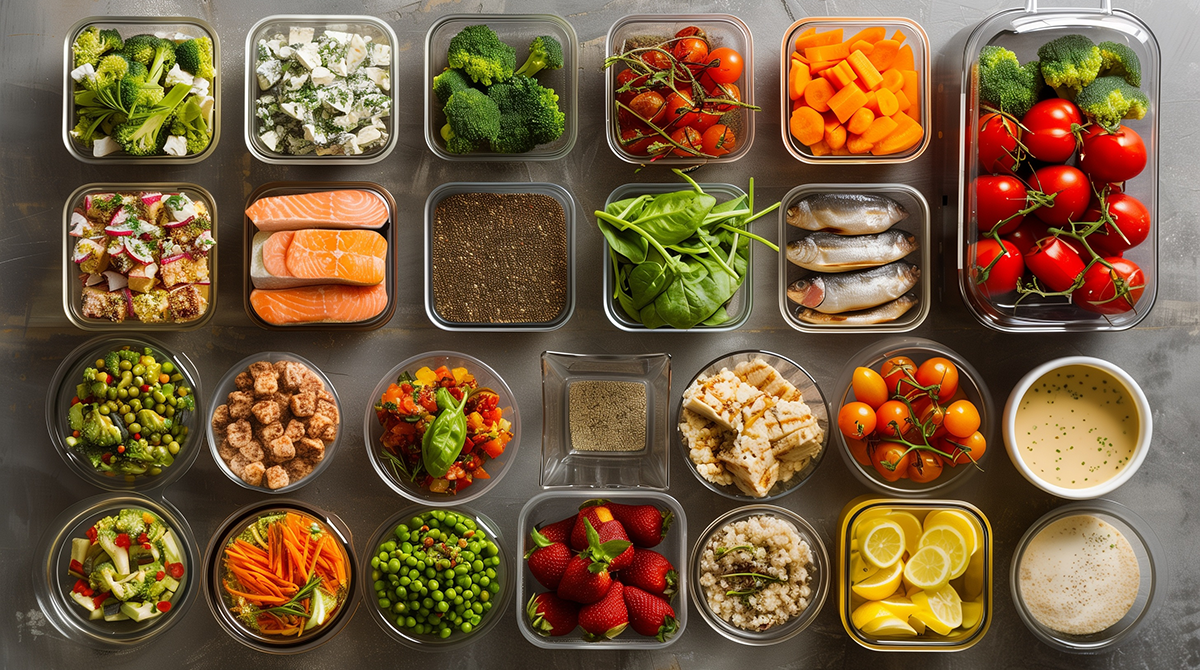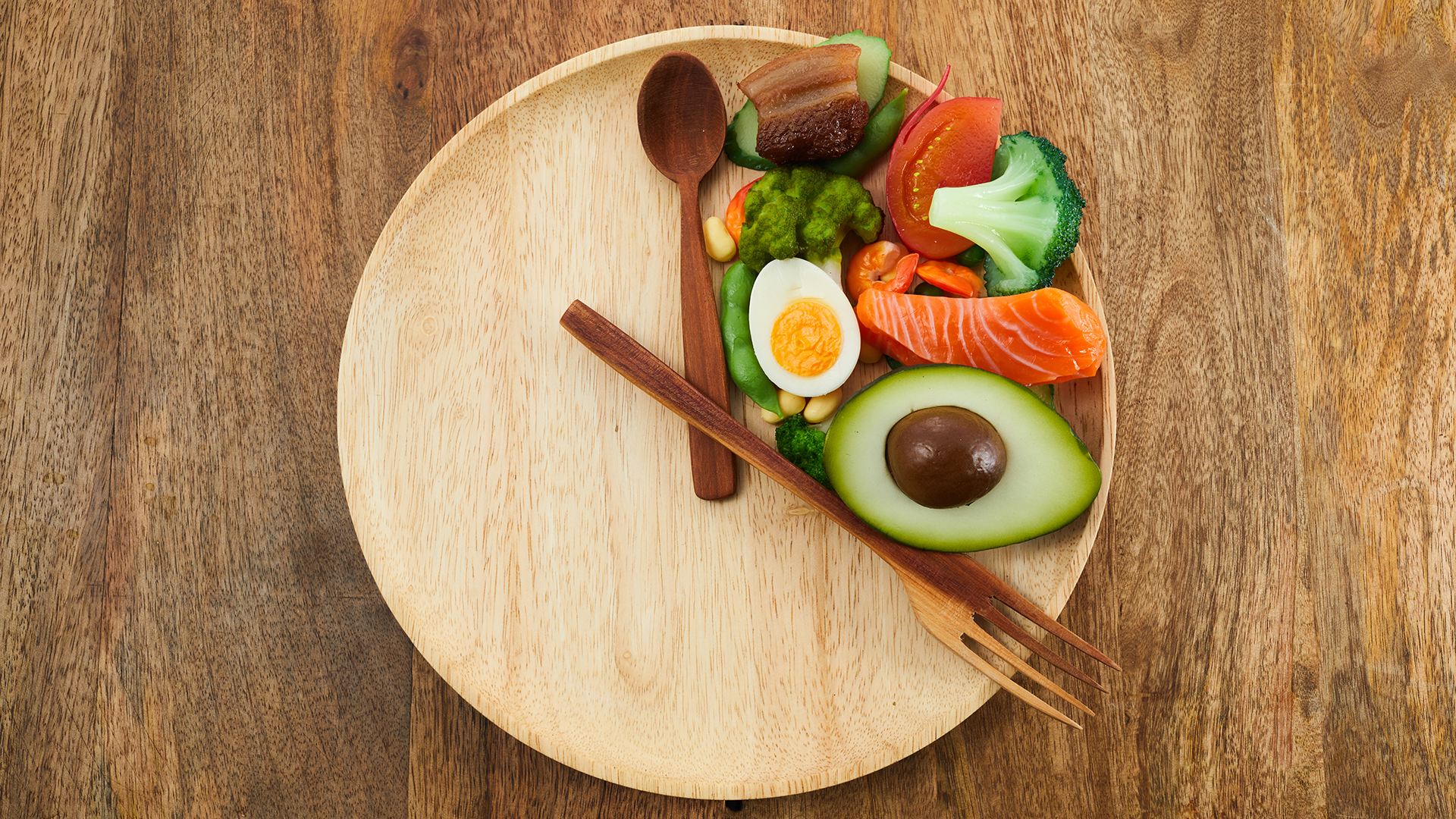What you’ll learn in this blog |
In your search for the “perfect” diet and losing weight, we’ll be surprised if you haven’t stumbled upon the hCG diet at some point - this weight loss aid has been the talking point of many radio and TV shows recently. We are going to look at the hCG diet claim that it can help with significant weight loss, and how the hCG diet limits your calorie intake.
And, with our research showing that 72% of women have always been overweight - it’s no surprise that many people are turning to alternative low calorie diets to help them with their weight loss journey.
But despite much discussion about the hCG diet, there’s been little evidence to back up its credibility.
So is the hCG weight loss diet a safe, healthy and effective way to drop pounds?
Or is it just another pie-in-the-sky fad diet?
In this blog, we’re exploring what the HCG diet is and whether it’s safe for you to do.
What Is the hCG Diet?
First, let’s talk about the hCG diet in case you aren’t familiar with it…
|
HCG stands for human chorionic gonadotropin, a hormone released in large quantities during pregnancy. |
The human chorionic gonadotropin hormone is produced naturally throughout pregnancy by the placenta. In fact, it’s used as a marker to confirm pregnancy in the early stages and can treat fertility problems in men and women.
The hCG hormone maintains the production of hormones such as progesterone in the early stages of pregnancy to support the healthy growth of the uterus and fetus. After the first few weeks of pregnancy, the hormone naturally declines under normal circumstances.
How does the HCG diet work?
In the 1950s, Endochronologist Albert T.W Simeons first suggested that the hCG hormone could be used as a tool to aid weight loss.
Following the hCG diet consists of two factors:
- You take the hCG hormone injections or tablets orally daily (usually in the thigh).
- Follow a low-fat and very low-calorie diet by limiting your intake of calories to a maximum of 800 calories per day.
Now hCG products are sold in different forms, including oral drops, pellets, and sprays.
The hCG diet includes a short-term eating plan designed to increase your weight loss quickly.
It is divided into three phases:
|
Phase 1: Loading phase Take hCG and eat plenty of high-fat, high-calorie food for 2 days. Phase 2: Weight loss phase Continue with hCG and eat only 500 calories daily for 3-6 weeks. Phase 3: Maintenance phase Stop taking hCG, and gradually increase your food intake but avoid sugar and starch. |
If you want moderate weight loss, then you can spend less time in the weight loss phase. However, if you want more weight loss, then you should follow the middle phase for the full 6 weeks - or may even need to do the cycle a few times as low calorie diets still take time to show results.
What food can I eat on the hCG diet?

Food-wise, you need to stick to a very low-calorie diet, but not a severe calorie restriction, and what you can eat varies slightly depending on the phase.
During the weight loss phase, you can only eat two meals daily - usually lunch and dinner.
The hCG diet recommends your calorie intake should commence at lunchtime; if you have anything before, it should consist of something very light such as a cup of black coffee without sugar (milk should be limited to one tablespoon daily).
Lunch and dinner should be protein packed with 3.5 ounces consumed at each meal, and you should also eat a limited amount of vegetables and fats.
On the hCG, some things you can eat include:
- Poultry
- Fish, such as scallops, crab or white fish
- Lean meats, like buffalo or extra-lean beef
- One small portion of vegetables such as broccoli, cauliflower, greens or celery
- You can have one piece of fruit at lunch and dinner
- One piece of toast or bagel without a topping

You are allowed seasonings but not butter, oils or dressing, and you should drink lots of water.
What food can I not eat on the HCG Diet?
As the HCG diet is extremely low-calorie, there are quite a few foods that you need to restrict if you want to stick to it, including:
- Dairy
- High-carb foods
- Fats and oils
- Sugary Beverages
- Alcohol
- Sweets
Does the hCG diet work?
So, does it work?
Those who think that the diet works believe that the weight loss achieved from hCG hormone injections and hCG supplements that help to boost your metabolism.The theory is that the hormone helps to blast your fat, and helps you lose weight quickly.
However, no matter what research you do on the subject, science fails to back up the claims and describes them as “unreliable.”
Research by the Family Physicians Inquiries Network discovered that the diet has no benefit over a traditional low-calorie diets, and there was no guarantee of weight loss.
In addition, the Food and Drug Administration has confirmed that it is now approved for weight loss, and you cannot get hCG without a prescription.
They have also warned the public about hCG diet products for years. HCG supplements and diet products over the counter are currently illegal, and the FDA has confirmed that any weight loss will come from the severe calorie restriction and not from the hCG. It is currently unlawful for any hCG-related diet plans to make any claims about weight loss as there is no scientific evidence to support it and the illegal products may cause health risks.
In addition to this, many people who have taken the journey down the hCG route have reported that they have regained weight very quickly after coming off the diet as their bodies crave the nutrients they weren’t receiving previously.
Is the hCG diet safe?
So, is the hCG diet safe?
Without the backup of the FDA and science, it is hazardous to consider the plan.
Any claims of weight loss appear to be due to the mega-low-calorie intake, but for the body to function correctly, it needs to be in harmony with itself, and an unstable diet such as this is likely to throw it off-balance.
A low-calorie diet of up to 800 calories is significantly short of the 2400 to 3000 calories per day recommended by the government. Depriving the body of so many calories can safely be described as dangerous, as you are likely to feel lethargic due to the lack of essential vitamins and nutrients.

Several side effects have been reported by those trying out the hCG diet, including:
- Blood clots
- Tiredness
- Depression
- Female breasts in males
- Swelling in the feet and hands
With so many side effects, there is a good chance that those attempting this diet may end up with long-term health issues such as an irregular heartbeat or electrolyte imbalance. It’s a risk, and you must ask yourself, “Is it one worth taking?”.
Can I Lose Weight on the hCG Diet?
All the evidence is stacking up to suggest that it is doubtful that you will have weight loss on this diet, and if you do, it’s not without significant risks as rapid weight loss can have consequences.
Any weight you lose is likely to be because of the low-calorie intake. This is likely to come with side effects, due to the lack of nutrition. Such strict dietary restrictions are likely to lead to several additional health issues, such as malnutrition, fatigue and an irregular heartbeat.
Yes, there may be plenty of companies singing its praises, but do they have the scientific proof to back it up?
There are many variations of the diet, including hCG shorts, “weight loss” drops, or hCG “weight loss pills”. They all lead down the same path as you are trying to balance it out with a severely restricted calorie intake. HCG injections or pills can also be costly, so there’s another negative factor to throw into the ring.

When it comes to well-thought-out, scientifically-proven diets, there is always the backup that comes with it. There will be little or no support for the hCG along the way, as you would be highly unlikely to find a doctor to condone the diet. You’ll be pretty much on your own as it’s already been scientifically proven to be unhealthy.
There’s also the likelihood of a quick weight regain once you come off the diet. It can also prove challenging to stick to due to the lack of food choices.
Perhaps we should revisit the reason why we want to lose weight.
For most, it’s purely for health reasons. We want to feel better in our bodies, in which case this would be a diet that we’d strongly advise you to steer clear of. You may lose weight, but you are unlikely to feel healthy.
Should you do the hCG diet?
Cutting your calorie intake down to 500 calories a day for a continuous period is bound to result in weight loss (if you manage to eat that little).
However, it will have serious consequences, such as malnutrition, fatigue and an irregular heartbeat. Not only does this make it dangerous to follow, despite being approved by the Food and Drug Administration but incredibly difficult to maintain.
Plus, all evidence points to any weight loss resulting from a very low-calorie diet rather than the hCG hormones (which, remember, are illegal over the counter).
When wondering if you should do it or not, you should revisit why you want to lose weight.
For many people, it’s for health reasons and wanting to feel better. If so, we strongly advise steering clear of the hCG diet. While you may lose weight, it’s not safe or sustainable.
If you want to find the best sustainable way to lose weight, as told by nutritionists, then have a read of this.




